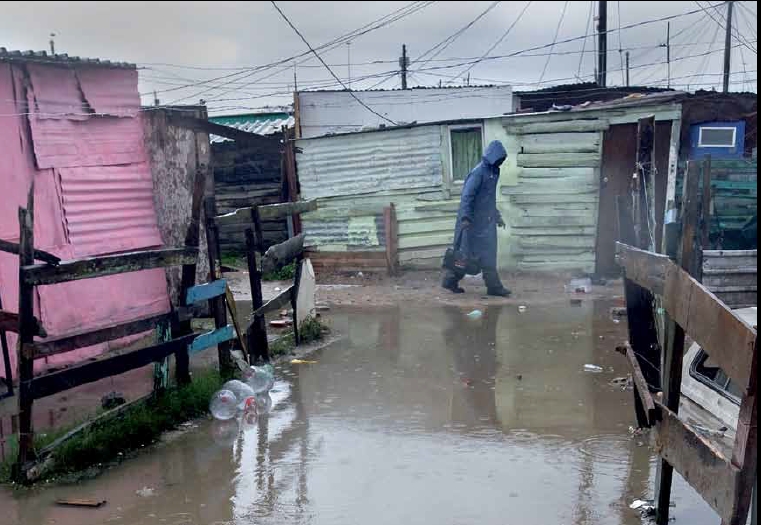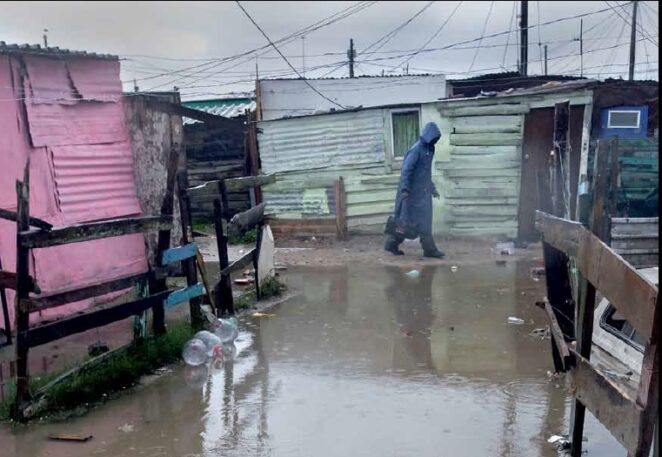Case-study /
The power of collaborative governance: Managing the risks associated with flooding in Cape Town, South Africa


Flooding in Cape Town (photo credit: Rodger Bosch)
The City of Cape Town faces many challenges: in-migration, housing and service delivery backlogs, budget constraints, shortage of land, the enormity of the need within informal settlements. In the midst of this, residents and city managers must also deal with the regular flooding which happens during the Cape’s winter rainfall season.
This is particularly true for marginalised communities who are settled on the Cape Flats, an area that has a high water table and numerous natural wetlands. The risks posed to communities by flooding may not be caused directly by climate change, but increasing frequency and intensity of storm events due to human induced climate change, coupled with ongoing urban growth and persistent informality, will undoubtedly increase these risks.
Often, when municipalities respond to converging threats and stresses in their jurisdictions, they tend to adopt highly engineered technical solutions, or will respond using policy measures, even in places with high levels of informality that lack planning and regulation. But our research shows that if the governance context is ignored – i.e. how government functions, how civil society is organized, how businesses operate and how these various spheres interact – those other solutions will fail to address the roots of the problem.
The power of collaborative governance in managing the risks associated with flooding and sea-level rise in Cape Town has been the focus of a three-year research project undertaken by the University of Cape Town’s African Centre for Cities, the Stockholm Environment Institute and partner institutions, working closely with the City of Cape Town, and funded by the International Development Research Centre (IDRC).
The Rising Waters booklet provides a synopsis of the findings from the study, written primarily for practitioners, residents of flood affected areas, civic leaders, government officials and local politicians. It looks at why and how city politicians and bureaucrats need to work alongside community leadership structures and with civil society organisations in order to find solutions to the ongoing flooding crises in Cape Town.
For further details on the project and other project publications visit the ACC website, or alternatively you can view more about this project on weADAPT.
